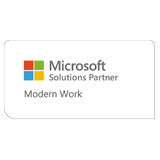Q&A with Technical Director Rob – Are servers still relevant?

Not all IT setups look the same, but with IT seemingly moving towards a cloud-focus, you may feel like servers are becoming outdated. So we’ve asked our Technical Director, Rob, a few questions about having a server in 2022…
Rob, it seems that it’s only possible for some companies to migrate away from having any servers at all. Could you explain why this is?
Whilst a serverless “cloud-first” strategy works well for many, it’s fair to say that it doesn’t suit every business. At Computer Geeks any conversation around Cloud vs Server will typically involve a “cloud readiness assessment”, during which we would review blockers which either prevent a successful move to the cloud or make it less desirable.
Examples of these blockers include:
Reliance on applications provided by a server – It’s not uncommon for businesses to deeply integrate certain applications into their day-to-day workflows. This could be an order processing system or accounting package into which you’ve heavily invested time, money and staff training. In the event this application can’t readily be delivered from the cloud as a service then a server is still the best place for it.
Poor connectivity – “Connectivity is king”, particularly when cloud services are involved. If you’re unable to obtain a fast and reliable connection at your primary office locations this can be a justifiable reason for holding off on a migration to the cloud.
Recent investment in new infrastructure – There’s nothing inherently “wrong” with having your own server, and this is a tried and tested approach to SME and Enterprise IT. If you’ve recently invested a significant portion of your IT budget in new server hardware it’s likely the last thing you’ll have on your mind is a move to the cloud. We’d expect a well specified server to last approximately 5 years, and unless the benefits of a cloud solution outweigh the cost of your investment it’s likely a cloud migration is somewhat less desirable (perhaps a hybrid approach is the best option in this case).
If I have servers can I still get value out of cloud solutions?
Thankfully, it’s not a case of “serverless or nothing”. It’s possible to get many of the benefits associated with cloud technology whilst maintaining an on-premise server footprint. Businesses adopting a “hybrid” strategy are often using Microsoft Exchange for their email and Microsoft Teams for internal communication and collaboration. This can be extended further with the storage of company data in OneDrive for Business and SharePoint Online, and the synchronisation of user identities from your server to the cloud, allowing use of the same password.
It’s important any data stored in Microsoft 365 related cloud services is backed up, and appropriately secured. I’d strongly recommend our Geeks 365 Secure solution (which includes MFA (Multi Factor Authentication), enhanced email security and M365 backup) to any clients looking to adopt a hybrid strategy.
Is there a certain use case where servers might provide an advantage over cloud alternatives?
In our experience some workloads perform optimally, or are more cost efficient, when housed on a well specified on-premise or hosted server. Examples can include large complex databases, or the storage and access of large media files.
Could you explain what Computer Geeks does as part of looking after servers in the live environment for it’s clients?
For clients with servers, we know the importance of this infrastructure and associated data to the smooth running of their business.
Servers managed by Computer Geeks are:
- Supported by a team of experts, with a breadth of experience troubleshooting and resolving server-based issues
- Backed up using the industry standard 3-2-1 method (with off-site copy to our secure datacentre storage)
- Monitored by our Realtime Monitoring & Management Agent, with alerts automatically logged to our support team for remediation
- Enrolled in a business grade centrally managed anti-virus solution
- Covered by patch management policy to ensure the application of Windows Updates
I really prefer that as a company we continue to invest in on-premise servers, is that a problem for Computer Geeks?
That’s not a problem at all. We take an objective approach to IT solutions and are certainly not interested in pushing clients down a particular route that may not meet the needs of their business, or it’s staff.
Our mission is to take the worry out of IT, whilst providing the right technical recommendations and support. This holds true whether you’re running from a fully on-premise server environment, hybrid model or serverless (cloud).
If you have any further questions you would like to ask, get in touch, our friendly team are happy to discuss this with you.





